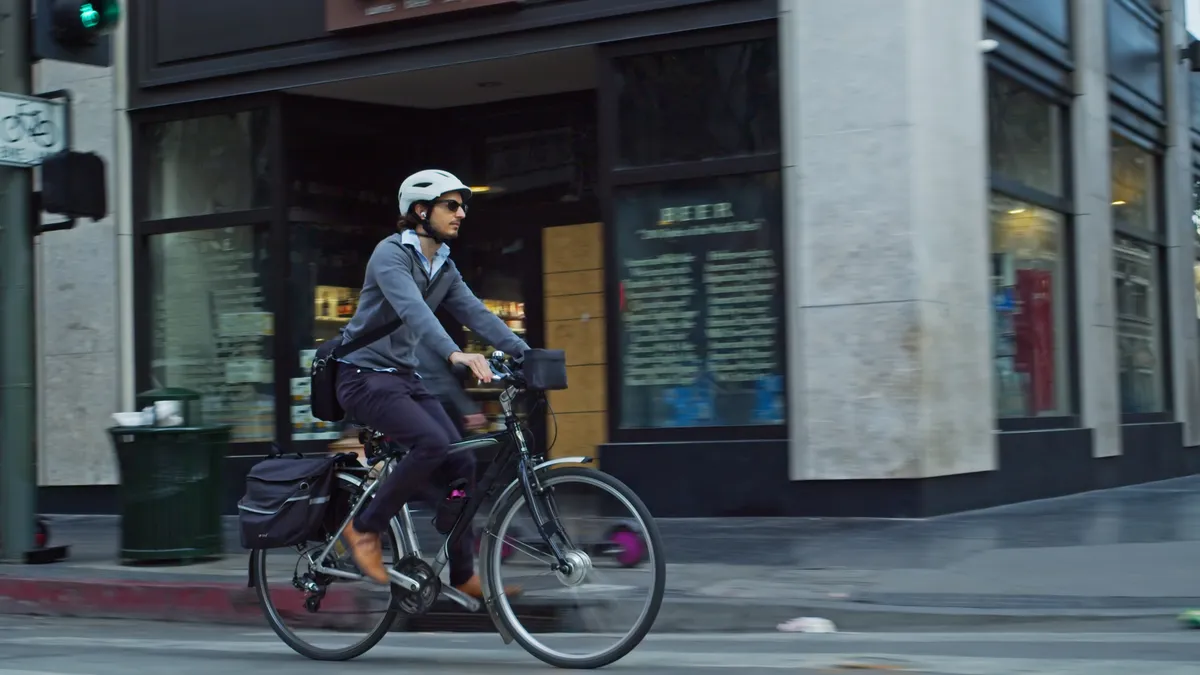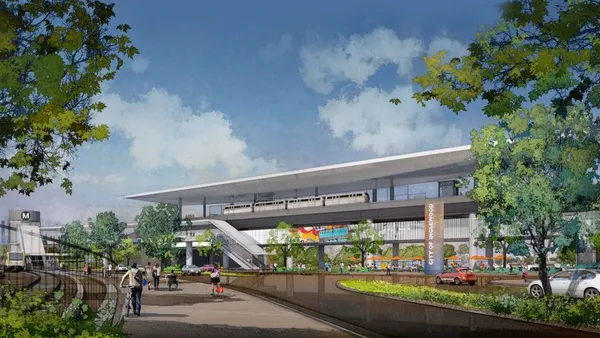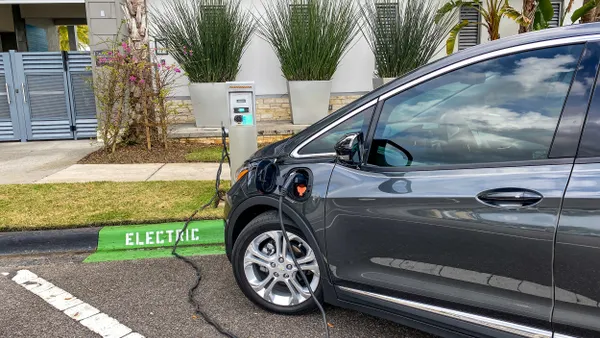Dive Brief:
- The total number of shared bicycle and scooter rides in the U.S. in 2023 rose 16% over the previous year to 133 million, according to a Monday report by the National Association of City Transportation Officials. The all-time high came in 2019 at 136 million shared micromobility rides.
- Shared bike ridership in the U.S. set a new record of 68 million rides, with dock-based bikes capturing the majority of rides at 61 million. Dockless scooters accounted for 65 million rides in 2023, below an all-time high of 86 million in 2019.
- Despite shared micromobility’s popularity, many cities are challenged with providing these services due to limited financial and operational resources, coupled with upheavals among private-sector providers and rising consumer costs, the report says.
Dive Insight:
The NACTO report highlights sharply rising costs for users of bike-share systems in the U.S. From 2019 to 2023, the cost for an annual pass rose 32% in Chicago, 30% in Boston and 21% in New York City. New Yorkers must pay over $200 for an annual pass. Riders also pay sales tax on each bike-share trip in many cities, unlike public transportation fares. As a result, “Bike share prices are now significantly higher than other public transportation options, especially for those taking pay-as-you-go trips,” the report says.
Electric bikes have largely taken over as the preferred mode in cities where both shared pedal and e-bikes are available. In Los Angeles, eight times as many trips took place on e-bikes than pedal bikes in September 2023; in New York City, four times as many e-bikes were ridden. One-third of total available station-based bikes in the U.S. in 2023 were e-bikes, but they accounted for 46% of trips. The NACTO report says that “e-bikes are used significantly more than pedal bikes in systems that offer both” in terms of the average number of trips taken per device per day.
According to NACTO, cities in the U.S. and Canada will tally 1 billion combined trips in the coming year. But to continue the success of shared micromobility, the report recommends that cities consider public ownership and public subsidies to make these services more affordable; eliminate the sales tax on shared bike and scooter rides; build protected bike lane networks and put micromobility devices and stations closer to homes and popular destinations.












